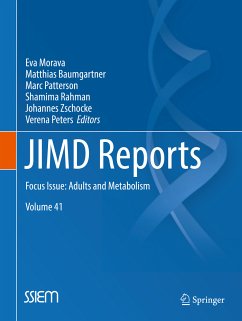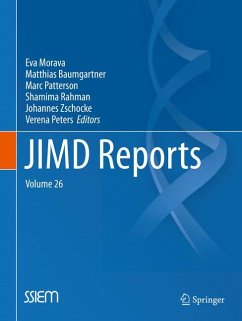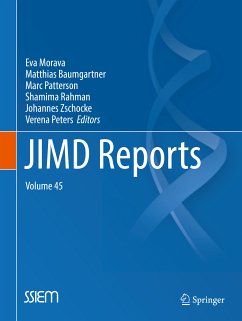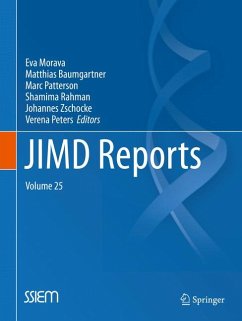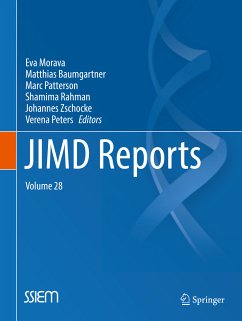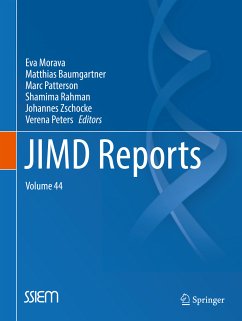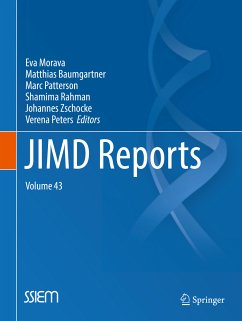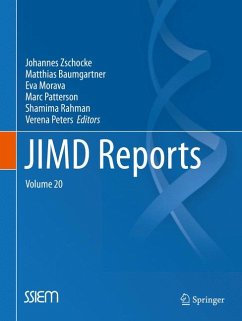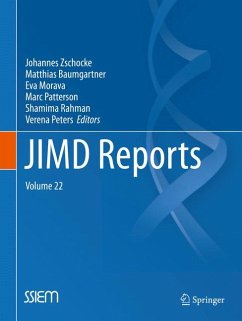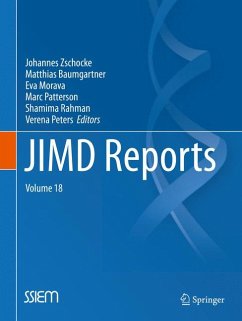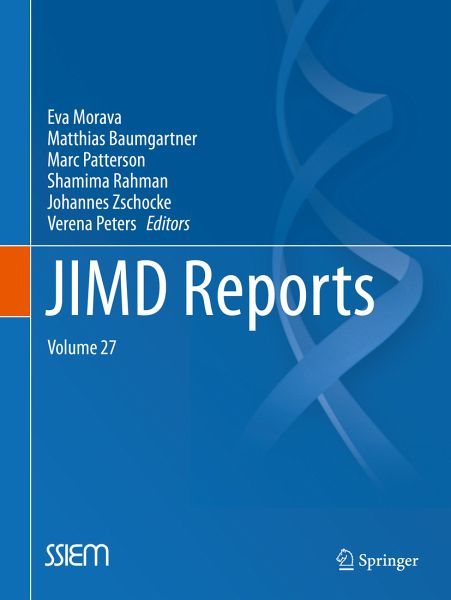
JIMD Reports, Volume 27 (eBook, PDF)
Versandkostenfrei!
Sofort per Download lieferbar
40,95 €
inkl. MwSt.
Weitere Ausgaben:

PAYBACK Punkte
20 °P sammeln!
JIMD Reports publishes case and short research reports in the area of inherited metabolic disorders. Case reports highlight some unusual or previously unrecorded feature relevant to the disorder, or serve as an important reminder of clinical or biochemical features of a Mendelian disorder.
Dieser Download kann aus rechtlichen Gründen nur mit Rechnungsadresse in A, B, BG, CY, CZ, D, DK, EW, E, FIN, F, GR, HR, H, IRL, I, LT, L, LR, M, NL, PL, P, R, S, SLO, SK ausgeliefert werden.



